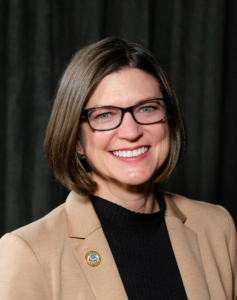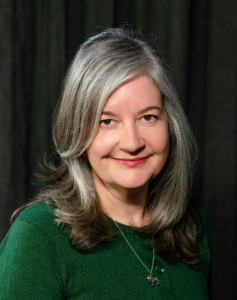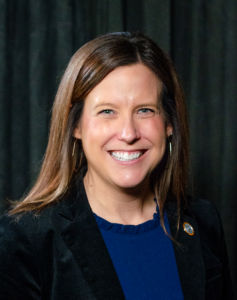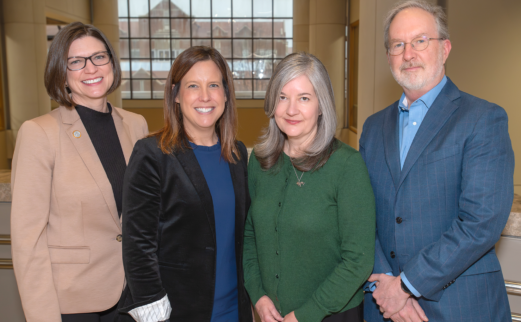
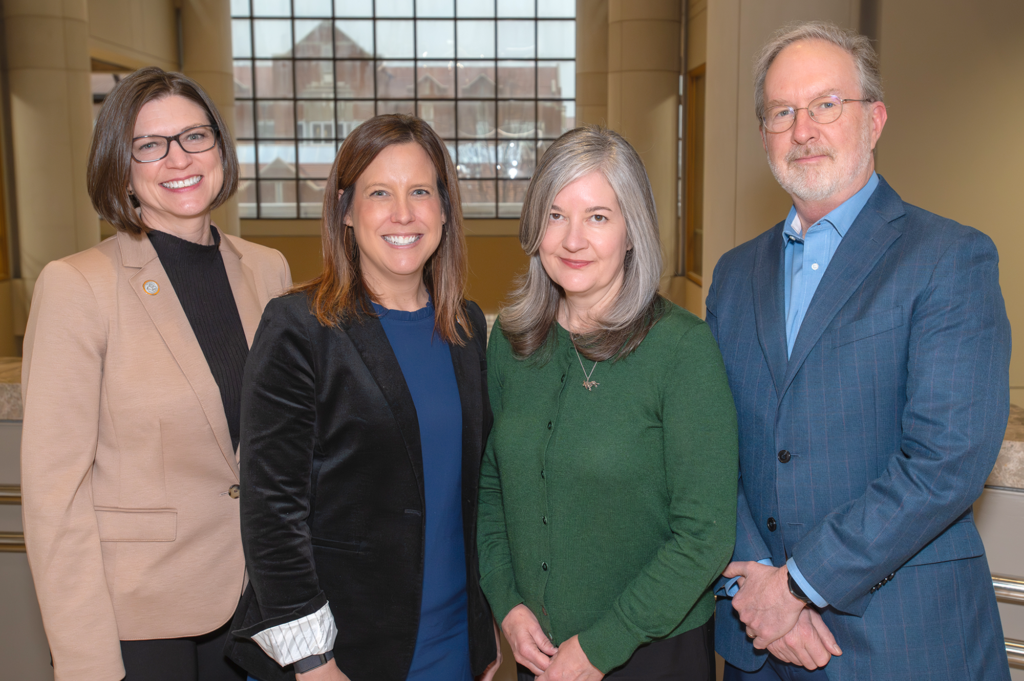
We are excited to share some new ways in which the University Libraries is contributing to the university’s research and teaching mission. Aligning with the university’s new strategic vision, teams within the libraries worked for over a year on developing goals in support of strategic areas pertaining to impactful research, student success, nimbleness, and our values as a land-grant university. Those teams recommended functional alignment with campus strategic directions and pointed out the need for ensuring employee wellness, workload balance, and sustainability in library practices. Conversations with campus and system leadership specifically recommended alignment with new campus priorities for teaching and research.

We heard from campus leaders about new directions in teaching and research that demand forward-thinking measures by the libraries. Increasingly, the modern land-grant university must deliver learning in online and hybrid learning environments. In addition, today’s students expect dynamic and immersive learning that might, for instance, incorporate gaming or virtual reality. Faculty researchers, too, have new expectations.The growth of transdisciplinary research means changing roles for library faculty. In addition to discipline-specific knowledge, there is a need for more in-depth ongoing support throughout the research process. And librarians must be nimble enough to support the needs of students in emerging and cross-disciplinary fields.
Our strategic planning resulted in a new organizational alignment with team-based support for the university’s evolving priorities. The libraries’ new alignment pairs deep subject knowledge with expertise in data usage, scholarly communications, evidence-based synthesis (through systematic literature review), open access, digital scholarship, and immersive learning. With those changes, the University Libraries is poised to lead the campus in offering online and immersive learning experiences, contributing to research impact, advancing new directions in scholarship, and creating sustainable practices.
To help meet these goals, the University Libraries has added five new departments. The new departments all emphasize a team-based approach to supporting the needs of the Volunteer community:
The newly organized Arts and Humanities Department serves as a bridge between the humanities and the performing and visual arts. The team provides research and curricular support to the campus community, with primary emphasis on the Arts and Humanities Division of the College of Arts and Sciences and on the College of Music. Team members provide support through research consultations on designing search strategies for literature reviews and other research projects and translating search strategies across humanities- and arts-related databases. The team contributes to curricular design and instruction for students in person and online, and provides outreach to engage the Volunteer community with library resources in support of arts and humanities.
Faculty and staff in the Data and Digital Scholarship Department assist with data needs across all disciplines. They consult on the discovery, management, use, and visualization of data. Connecting scholars to software, tools, programs, and languages for working with data, the team supports them in creating rich experiences for people interacting with their data and scholarship. Consulting and instructional services help ensure that data is understood contextually, presented clearly, and preserved for future use.
The Health and Wellness Department provides academic units with research and curricular support encompassing various aspects of health and wellness. The team understands and contributes to transdisciplinary research endeavors related to health outcomes in people, animals, plants, and their shared environment. Health and wellness librarians assist with designing search strategies for literature reviews, evidence-based practice projects, and knowledge synthesis reviews. They are available for translating search strategies across relevant databases and using citation management and systematic review screening tools, among other services.
The Immersive Spaces and Technologies Department provides expertise and support for technology-rich services in Hodges Library, including The Studio media and design lab, Medbery Makerspace, a gaming and esports lab, and a virtual reality room. The team supports research and curricula in innovative academic and professional programs in the College of Communication and Information, the Haslam College of Business, and the College of Architecture and Design. They assist with the production, editing, and design of media projects and provide instruction in media literacy. The department offers makerspace technologies and tools for 3D printing, sewing, crafting, gaming, and other activities. They help library users from all disciplines and skill levels take their projects from idea to prototype.
The Research Impact and Open Access Department works with scholars in all disciplines to communicate the value of research and scholarship. The team assists with understanding journal-, researcher-, and article-level metrics as well as alternative metrics that show research impact beyond publication. They connect researchers to knowledge and resources to help them make informed decisions about their rights as authors and how participating in open access scholarship can further the impact of their scholarship and ensure broad access to research.
These new teams work closely with existing library departments dedicated to providing stellar collections and assisting researchers as they discover and use information. We are the heart of campus and a 24-hour hub for intellectual activity. We have spaces, collections, people, tools, and technologies to inspire learning, research, and innovation. Our goal is to support the teaching, research, and service mission of the university and, in doing so, to enhance the academic experience of students and deepen and extend the university’s connection to Tennesseans and the world.
As part of its 10-year accreditation process, the university will launch a new Quality Enhancement Plan, a campus-wide initiative for enhancing student learning. The libraries’ new vision and restructured organization are in perfect alignment with the QEP goal of building a strong web of social connections within and outside the classroom to help students thrive at UT and beyond.
Visit us at Hodges Library, DeVine Music Library, or Pendergrass Agriculture and Veterinary Medicine Library, or use our collections and services online at lib.utk.edu. We invite you to learn more about the libraries’ strategic vision and the ways the University Libraries can support you!
